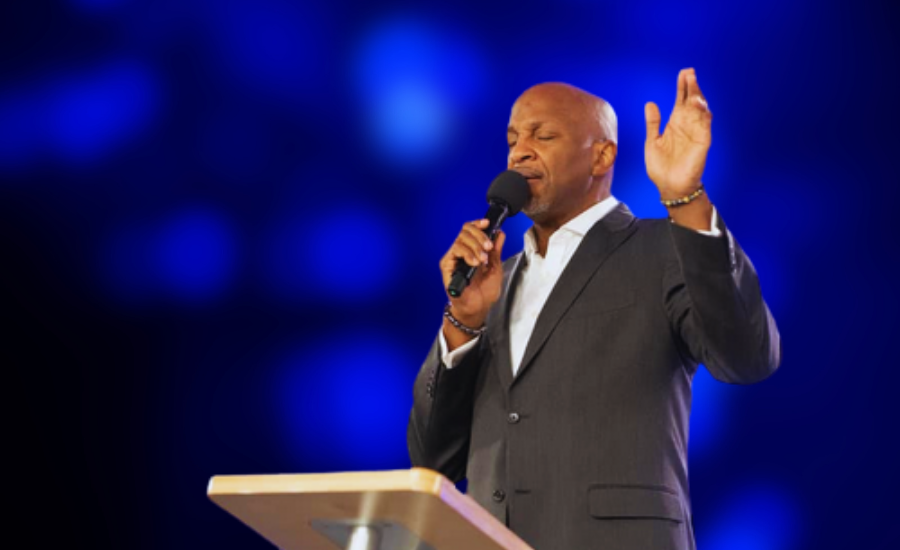Bible teacher, former fan condemns ‘witchcraft’ in Beyoncé’s music
Beyoncé’s most recent album included a tribute to church girls, but not all church girls are in agreement with her message or imagery. Many Christians have expressed concern over what they describe as occult symbolism, pagan references, and witchcraft in her art.
By Rebecca Johnson // Controversy // EEW Magazine Online
Beyoncé has lost a fan in poet, author, and Bible teacher Jackie Hill Perry due to themes of witchcraft, paganism and the occult in her music. (Credit: EEW Magazine Online)
Beyoncé Giselle Knowles-Carter remains one of the most influential—and polarizing—figures of the 21st century, both inside and outside of Christian circles.
The latest controversy involving the most-awarded female artist of all time centers on author, poet, Bible teacher, and hip-hop artist Jackie Hill Perry, a former Beyoncé superfan who is now speaking out against what she calls “witchcraft” and demonic themes in the superstar’s music.
“I don’t know who told us you’ve got to be a witch to be Black,” said the Gay Girl, Good God author in a passionate, viral sermon clip initially shared by Hollywood Unlocked.
“You are not more Black by engaging in witchcraft that is still propagating a white supremacist lie that Black people in Africa didn’t know Jesus. I am angry that the powers that be in social media, in culture, in music—and in Beyoncé’s music, and in Kehlani’s music—are really trying to convince us that all spiritualism is the same,” she added.
Photo Credit: Parkwood Entertainment—Illustration by EEW Magazine Online
Beyoncé—who has made multiple references to the Afro-Caribbean religion Santería, embodied the Yoruba goddess Oshun, and worn clothing and accessories depicting Baphomet, a goat-headed symbol associated with occultism and pagan worship—has often faced backlash from Christian leaders who view her artistic choices as idolatrous or spiritually compromising.
In recent years, the “Church Girl” singer’s Christian fanbase has appeared to dwindle as her music and image have increasingly aligned with themes tied to mysticism, spiritual pluralism, and non-Christian practices.
Meanwhile, Perry, who first gained national attention in 2014 with the release of her debut album under Humble Beast Records, has since become a prominent voice in the conservative Christian community. Her latest viral warning against embracing, supporting, or celebrating Beyoncé’s music has sparked widespread conversation across social media.
“We have digested this impurity, and we want so badly not to be legalistic that we actually become profane,” Perry declared in the clip. “We want so badly to have all these freedoms that we are entertaining demons. And you wonder why you are depressed, and you wonder why you are anxious, and you wonder why you have nightmares, and you wonder why you can’t sleep, and you wonder why you see things in your room at night. It’s because you are opening up doors to all kinds of demons. Close them.”
“Whatever you’ve got in your home that’s witchcraft, throw it away. Throw it away! Burn everything you’ve got,” she continued passionately, “because we are women who are going to love God with all of our heart, all of our mind, and all of our soul. We are not going to imitate the detestable practices of the nations.”
In a longer version of the sermon uploaded to her YouTube channel, Perry clarifies that the issue extends beyond one celebrity.
“The conversation is bigger than Beyoncé,” she explains. “When she’s gone, there will always be opportunities for us to make bad decisions in what we watch, what we digest, what we entertain, and so what we need is wisdom.”
Since the clip, less than two minutes in length, began circulating online, it has sparked both praise and backlash. While many believers have applauded Perry for speaking boldly against what she calls spiritual compromise, others have rejected her message, instead aligning with scholars who view critiques of African spirituality through a racial and historical lens.
Among them is Africana studies scholar Wunyabari O. Maloba, who attributes the decline of indigenous African religions to European colonialism. Maloba argues that colonial powers promoted “the racist principle that barbarism pervaded Africa and therefore there was no culture to be salvaged.” This, he says, fueled missionary biases that delegitimized traditional African faiths by branding them as demonic or malevolent. Supporters of this view often regard the rejection of witchcraft and ancestral religions as a continuation of colonial-era prejudice.
Perry, however, firmly rejects that perspective—while also distancing herself from harsh, condemning rhetoric toward those who disagree. She makes clear that her goal is not to shame Beyoncé’s supporters but to encourage discernment.
“If you like Beyoncé, if you bought her tickets, if you plan to go, I am not shaming you,” she tells her audience. “My job here and my heart is to instruct you and give you a framework by which you can make a wise decision.”
Perry’s evolution from devoted Beyoncé fan to outspoken critic is a relatively recent one. She recalls falling in love with the singer’s music at just eight years old, after receiving a Destiny’s Child CD as a Christmas gift from her mother. Over the years, she remained a proud member of the Beyhive, buying albums, attending concerts, and celebrating the artist she once admired without reservation.
“In fact,” Perry admits, as little as a year ago, she wouldn’t have even agreed with the things she is saying now.
But, it’s clearly a new day.
As the Holier Than Thou author’s commentary continues to stir conversation among Christians, she encourages believers wrestling with the issue to seek the Lord’s direction for themselves.
“Pray,” Perry urges. “Ask God what He would want you to do.”







